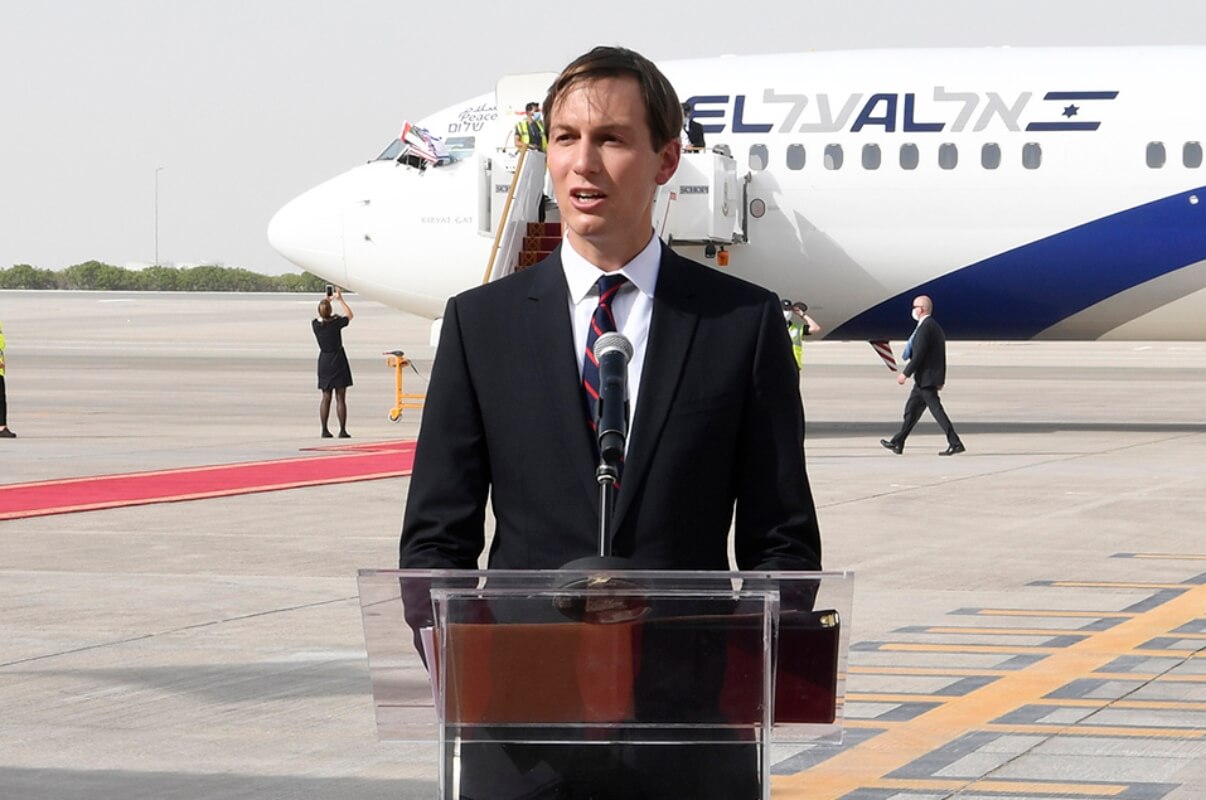Following Moroccan King Mohammed VI’s decision to establish formal diplomatic ties with Israel last week, White House senior adviser Jared Kushner will lead a US delegation to both countries for a detailed discussion on the normalisation deal next week.
According to a senior administration official, President Donald Trump’s son-in-law will first arrive in Israel on Monday and meet with Israeli Prime Minister Benjamin Netanyahu. Kushner will be accompanied by Special Representative for International Negotiations Avi Berkowitz and the chief executive officer of the US International Development Finance Corporation, Adam Boehler. The US delegation and an Israeli team led by Israeli National Security Advisor Meir Ben-Shabbat and will then fly via El Al airlines from Tel Aviv to Rabat on Tuesday, in an occasion that marks the first commercial flight to fly directly from Israel to Morocco.
Last Friday, the Trump administration pushed arms sales of drones and precision-guided weapons worth $1 billion to Morocco during the last session of the US Congress and also hinted at more potential deals with Rabat. Products in the present deal include MQ-9B SeaGuardian drones made by private energy and defence corporation General Atomics, alongside Hellfire, Paveway, and JDAM precision-guided munitions made by Lockheed Martin, Raytheon, and Boeing, respectively.
This deal came into effect almost immediately after Morocco became the fourth Arab country to normalise relations with the Jewish state on Thursday after the UAE, Bahrain, and Sudan did the same through US-brokered deals. Morocco’s royal court confirmed the immediate reopening of embassies in Tel Aviv and Rabat, which were previously shut down in 2000 following the outbreak of the Palestinian uprising, popularly known as the second intifada.
The primary reason behind Morocco’s motivation to normalize ties with Israel was a bargain with the US to recognise Rabat’s claim over the disputed Western Sahara region, where tensions between government forces and the separatists Sahrawi forces have escalated. In fact, the self-proclaimed Sahrawi Arab Democratic Republic’s (SADR) army, the Polisario Front, recently broke a 29-year-old ceasefire to declare war on Morocco and has been blocking a crucial border crossing. Following Rabat’s decision to establish formal diplomatic ties with Israel, Washington extended de-facto legitimisation to Moroccan sovereignty over Western Sahara.
Since the announcement, several protests have erupted across Morocco, as many Moroccans considered the deal to be a betrayal to the Palestinian cause. However, Moroccan authorities have banned all anti-normalisation demonstrations. Yesterday, officials refused to authorise a demonstration that was scheduled to take place outside the parliament in Rabat. In response, six Moroccan rights groups issued joint statements condemning the decision as a “dangerous step”. The Moroccan monarch reassured demonstrators by arguing that the deal “does not affect in any way Morocco's permanent and sustained commitment to defend the just Palestinian cause and active engagement for the establishment of a just and lasting peace in the Middle East.”
During their visit, Kushner and his team will continue to hold talks with countries from the Arab and Muslim world and aim to seal at least one more agreement before Trump leaves office on January 20.
Jared Kushner to Lead US Delegation to Israel and Morocco Following Normalisation Deal
The US and Israeli delegations will take the first direct commercial flight from Tel Aviv to Rabat next week.
December 17, 2020

SOURCE: Morocco World News
